Archives
-

The Very First Lesson in Teaching Slavic Languages as Foreign and Heritage Languages
No. 3 (2025)The very first lesson in language teaching has long been regarded as a particularly significant moment. It is far more than a mere organisational starting point: it is a moment in which expectations are met or disappointed, learning dispositions begin to develop, and the foundations for motivation and rapport are laid. Especially in the teaching of Slavic languages – whether as foreign or heritage languages – this first lesson can be of special importance. For foreign language learners, it opens the door to a new and often unfamiliar linguistic and cultural world; for many heritage speakers, it marks the beginning of a conscious engagement with the standard language of their family background. Thus, the first lesson is not only a pedagogical starting point but also a symbolic act of encounter, recognition, or re-orientation.
-

Language and Cultural Contact
No. 2 (2025)Worldwide, speakers who use two or more languages are continuously interacting with one another, resulting in constant contact between languages and cultures. This is especially evident in language teaching, where we observe a rich mosaic of cultural and linguistic exchanges. Various factors, including the target language, the language of instruction, and the diverse linguistic backgrounds of learners and teachers, contribute to these dynamics. All this highlights the relevance of language and cultural contact as an interdisciplinary research field, which not only informs language-teaching practices but also enriches student experiences. It is worth emphasising that in contact linguistics, the focus is not directly on contact between languages, but rather on the consequences of interactions between speakers. In other words, language contact leads to reciprocal influences, which manifest in both explicit and implicit contact phenomena – such as lexical borrowings, interferences, code-switching, or language change. The eighth issue of the journal Didaktik slawischer Sprachen is dedicated to this timely topic, which is by no means limited to the teaching of Slavic languages. This thematic issue brings together seven linguistic studies and didactic contributions on language and cultural contacts between individual Slavic languages, the findings of which provide a valuable basis for the teaching of first, foreign, second, and heritage languages. The volume is complemented by a review of a recent textbook that addresses diverse language contact situations and examines the institutional positioning of contact languages in Germany. Just as research on language and cultural contact can be defined as open-ended, covering the entire spectrum of contact and sociolinguistic aspects, and ranging from almost microscopic analysis of recorded language fragments to the fate of individual nations (Heath, 1984, 367), the contributions in this issue are also diverse and reflect different methodological approaches and thematic foci.
-

And Action! – Audiovisual Media in Slavic Language Teaching
No. 1 (2025)It is a great pleasure to announce the publication of the seventh issue of DiSlaw, which is dedicated to a timeless topic – the use of audiovisual media in the teaching of Slavic languages. Audiovisual media are omnipresent in our daily lives and their production and reception are an important part of young adults’ lives. Besides watching films on streaming platforms or videos on YouTube or producing short clips for social networks, especially young people use audiovisual media not only for entertainment but also for information and communication. It therefore seems useful and necessary to integrate these media in the foreign language classroom.
-
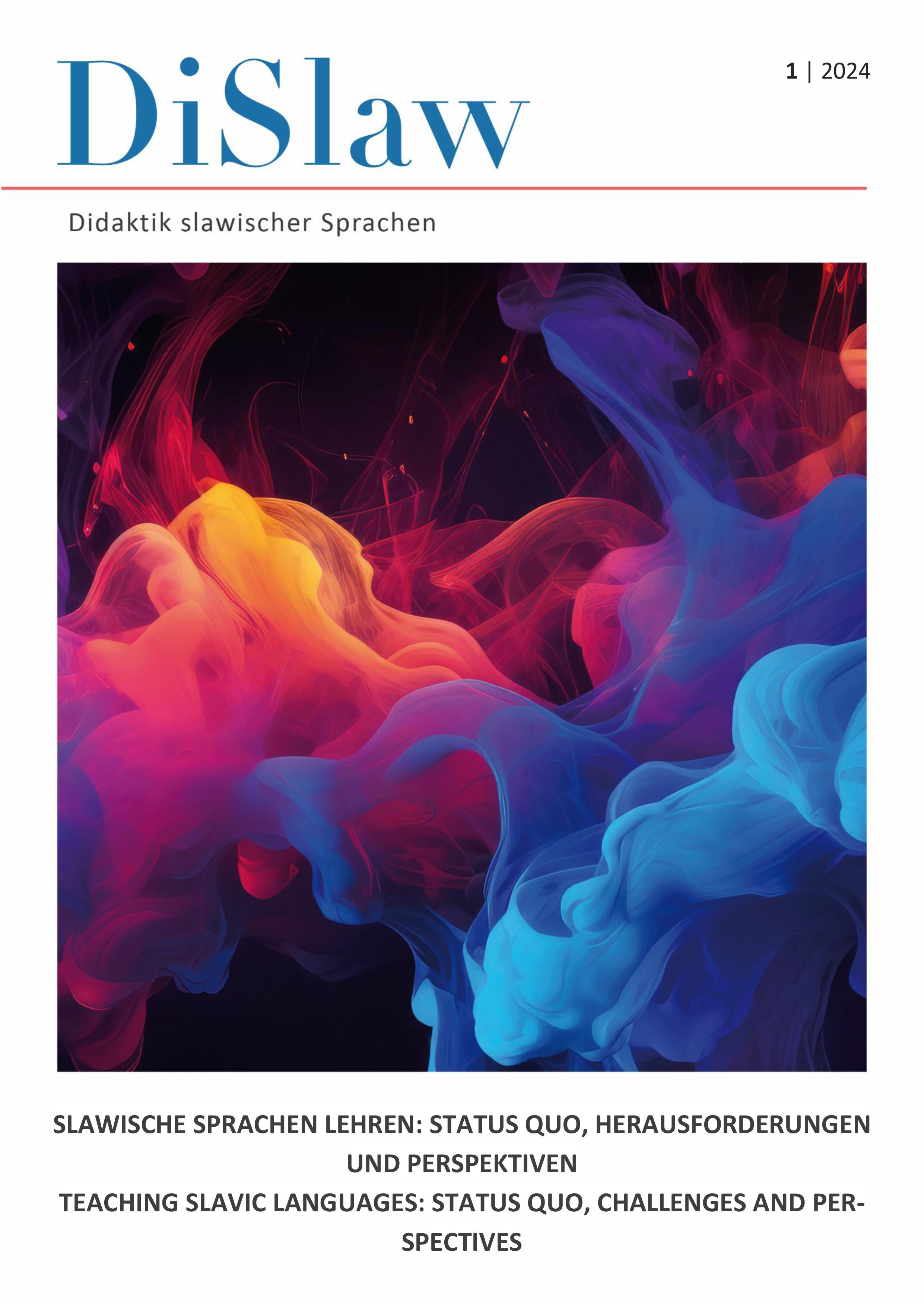
TEACHING Slavic Languages: Status Quo, Challenges and Perspectives
No. 1 (2024)We are pleased to present the sixth issue of DiSlaw magazine, which this time is dedicated to
‘Teaching Slavic Languages’.
After decades of learner orientation or learner-centredness and related concepts such as individualisation or learner autonomy being the focus of foreign language didactics and language teaching research, there has been renewed research interest in teaching and teachers, and not just since the publication of the Hattie study (Caspari, 2016; Hattie, 2021; Klippel, 2016; Königs, 2014; Martinez, 2016). The complexity of teaching processes and teaching is reflected in numerous general didactic models (for an overview, see (Jank & Meyer, 2000); research is dedicated to topics such as successful teacher behaviour, professionalisation of teachers, methods in foreign language teaching, use of media or questions of assessment and evaluation (see Hallet et al., 2020; Kniffka, 2016). -
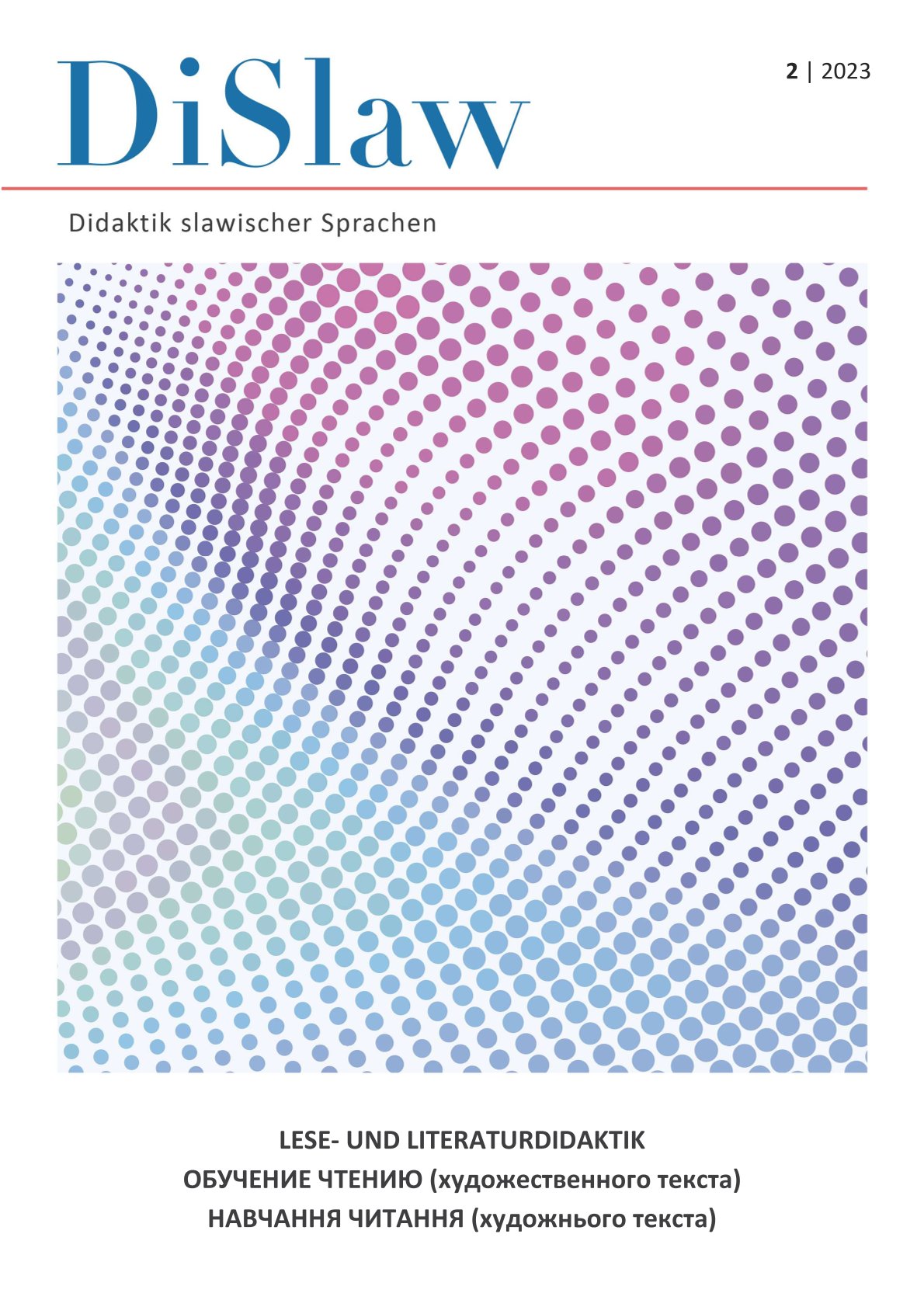
Teaching Reading and Literature
No. 2 (2023)We are pleased to present the fifth issue of the journal DiSlaw. It is dedicated to teaching reading and literature and accordingly zooms in on the possible uses of literary texts in foreign language teaching. In doing so, we explore three fundamental questions: What is literature? What can it be used for in the classroom? And: How can this be done? These questions help us to approach the triad of objectives, content and methods that determines the didactic framework of teaching (cf. e.g. Heimann et al., 1965; Klingberg, 1995, 41).
-
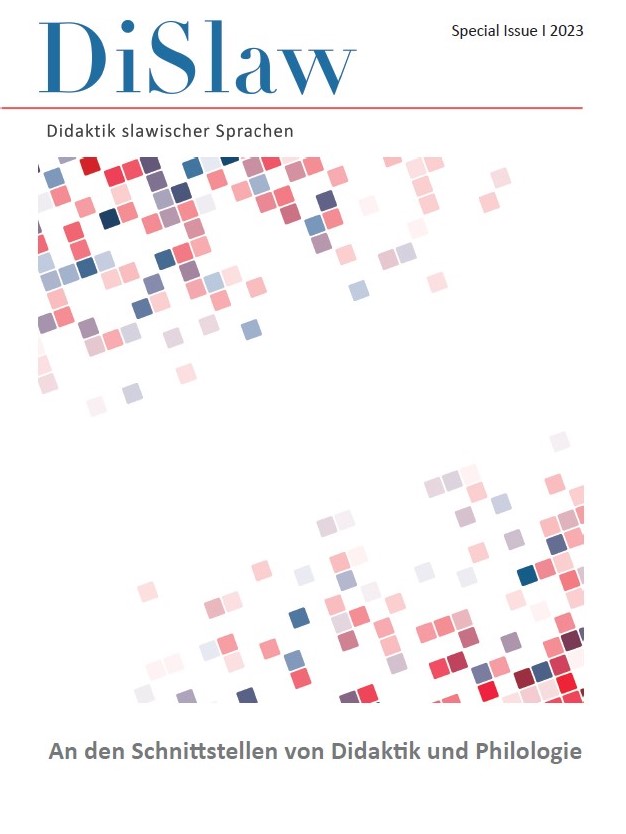
At the Interfaces of Didactics and Philology (Special Issue)
2023The special issue of DiSlaw was compiled to honour Wolfgang Stadler as an outstanding scholar and esteemed colleague on the occasion of his retirement. For this purpose, we, the editors, decided to choose the journal (Didaktik slawischer Sprachen) since it is a publication medium that Wolfgang Stadler as its founder and co-editor holds very dear. In reference to DiSlaw, one of the focal points of Wolfgang Stadler's professional activity already becomes evident, namely the combination of teaching Slavic languages - in his case Russian - with academic reflection.
-

Differentiation and Personalisation
No. 1 (2023)We are pleased to present the fourth issue of the DiSlaw journal to you, which is devoted to the topic “Differentiation and Personalisation”. Differentiation advocates the adaptation of school learning opportunities and performance requirements to the pupils’ own learning pace, individual interests, and personal capabilities (cf. Müller, 2018). In the school context, differentiation can occur in various ways, e.g. by means of different tasks and methods, optional classes, learning products, and social aspects (cf. ibid, 18–43). Thus, different abilities, learning styles, aptitudes, and inclinations of learners can be considered (cf. e.g. Niggli, 2012). In Europe, the teaching of Slavic languages is increasingly characterised by the heterogeneity of learners, such as bilingual and heritage speakers as well as foreign language learners (cf. e.g. Vogtenhuber et al., 2012, 22). In view of this broad spectrum of linguistic and individual differences, new concepts, models, and tasks are required to counterbalance the increasing heterogeneity of learner groups.
-
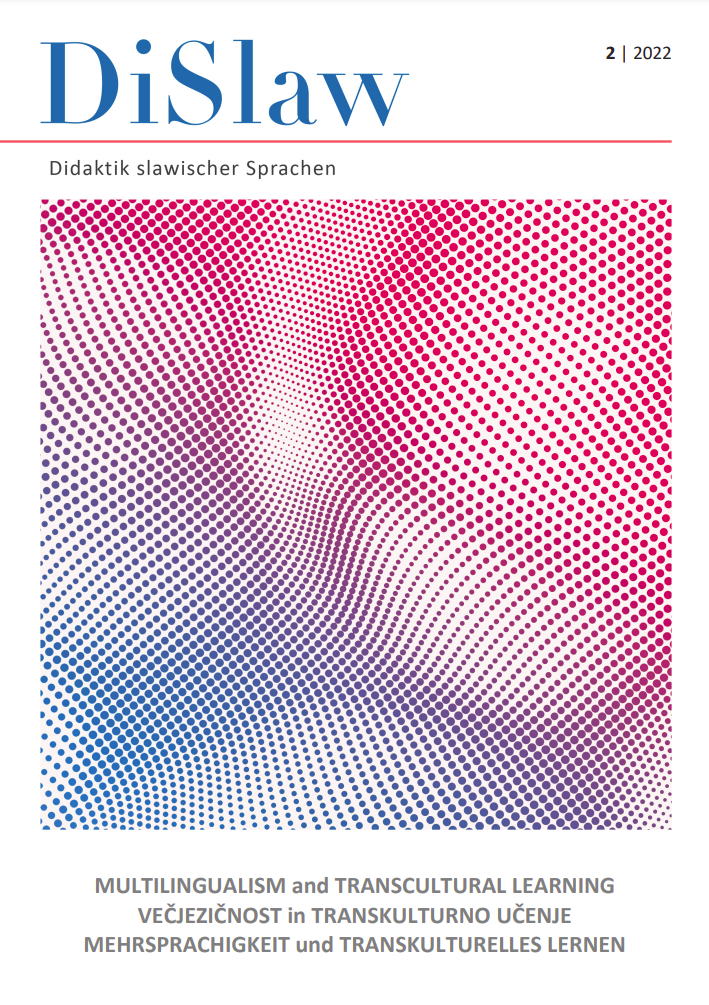
Multilingualism and Transcultural Learning
No. 2 (2022)We are pleased to announce the third issue of DiSlaw on the topic of multilingualism and transcultural learning, since language, while not the only communication system, is a specific feature that distinguishes humans from other living species. No other communication system that allows humans to express themselves and to form social identities has such a high degree of abstraction and symbolism. It becomes even more complex when the communicative system is developed and expanded in several languages, which results in bilingual and multilingual speakers becoming visible and audible in society. Diversity is part of our everyday life and does not only apply to regions that have more than one officially recognised national language. As expected, the linguistic expansion into transcultural spaces has not stopped at classroom doors, teaching spaces, and the educational system as a whole. This process is accompanied by challenges that demand adequate approaches and solutions from language pedagogy.
-
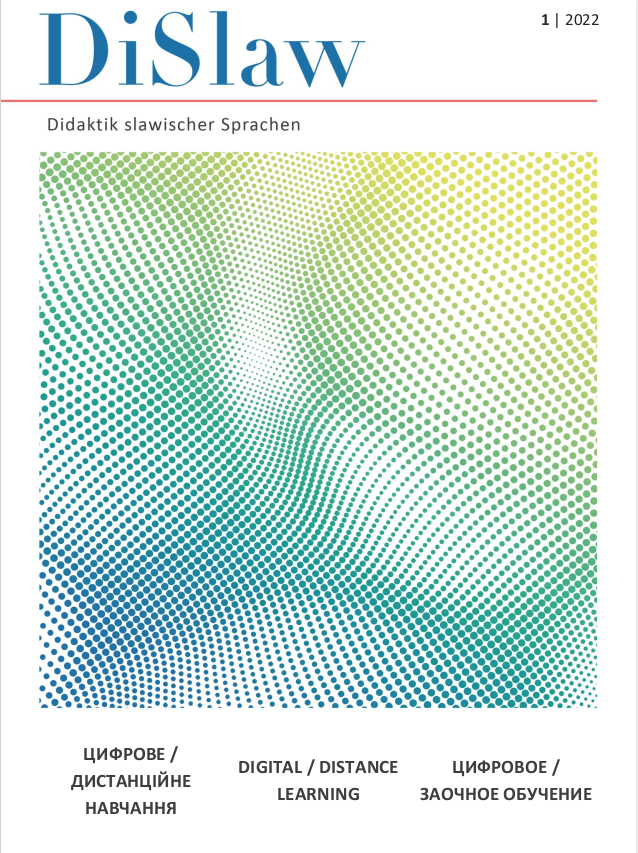
Digital / Distance Learning
No. 1 (2022)The second DiSlaw-issue is dedicated to the topic Distance / Digital Learning that has preoccupied us on various levels and has eventually become a new reality since the COVID-19-pandemic hit. The sudden and constant use of digital media for teaching and learning purposes as well as their effective and learning outcome-oriented implementation did indeed pose some new challenges for us. In reference to the ongoing digitisation of teaching and learning materials, Funk (2016, p. 439) points to a “threefold problem”: firstly, teacher educators and textbook authors are being replaced by freelance editors and non-specialist developers; secondly, there appears to be a lack of criteria-based analyses of materials for mobile learning scenarios; lastly, due to the increasing diversity of learning environments and learning paths the weakly established empirical impact research on textbooks becomes incrementally less accessible to observation.
-
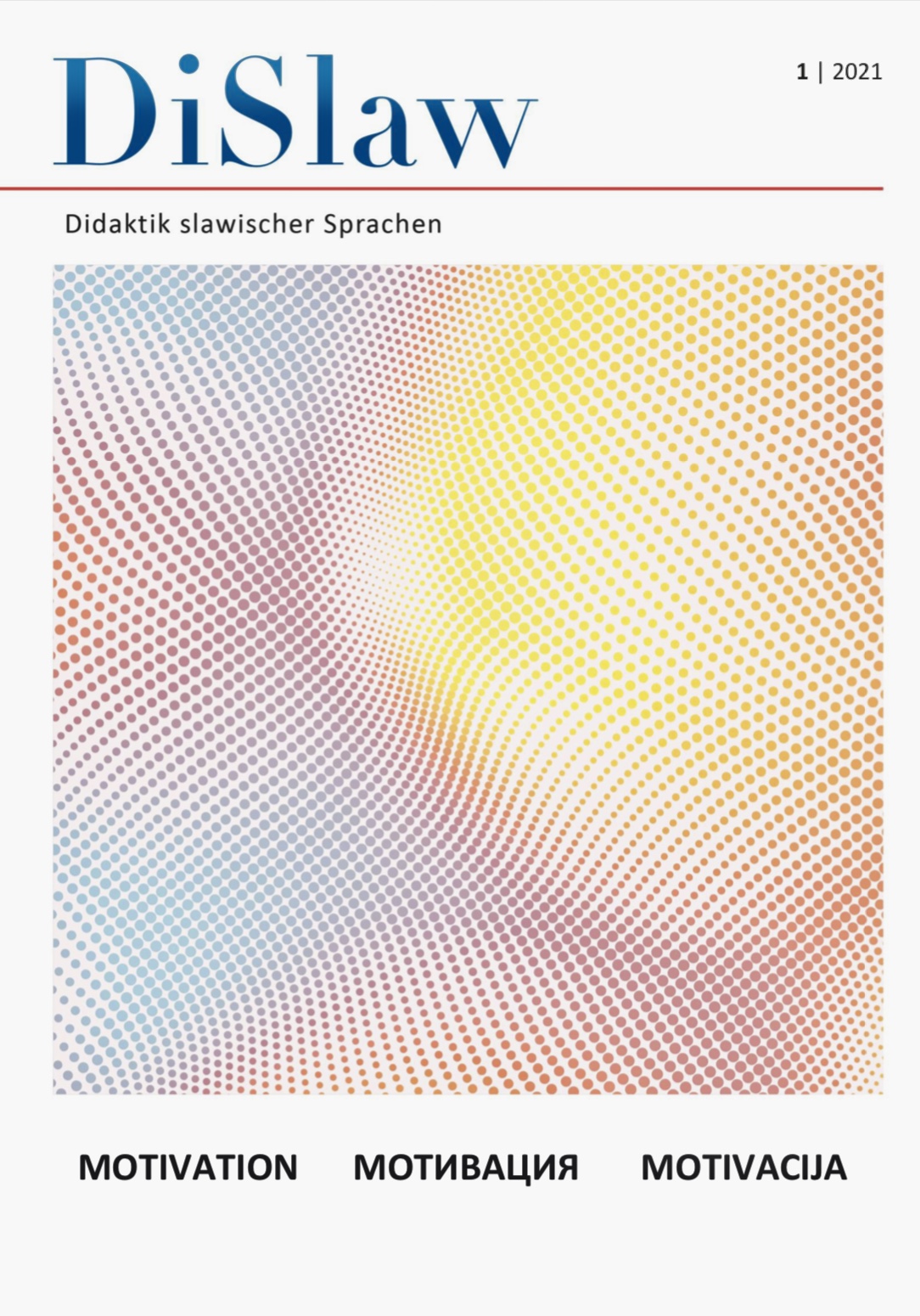
Motivation
No. 1 (2021)We have dedicated this first issue to the topic of motivation, as it has occupied our minds in many different ways over the past year. Motivation is generally seen as an important factor influencing (successful) learning. However, in the broad field of motivation research, we have so far found only a few studies on the learning and teaching of Slavic languages. With the first issue of DiSlaw, we intend to introduce the discourse on motivational issues into the Slavic languages community.

